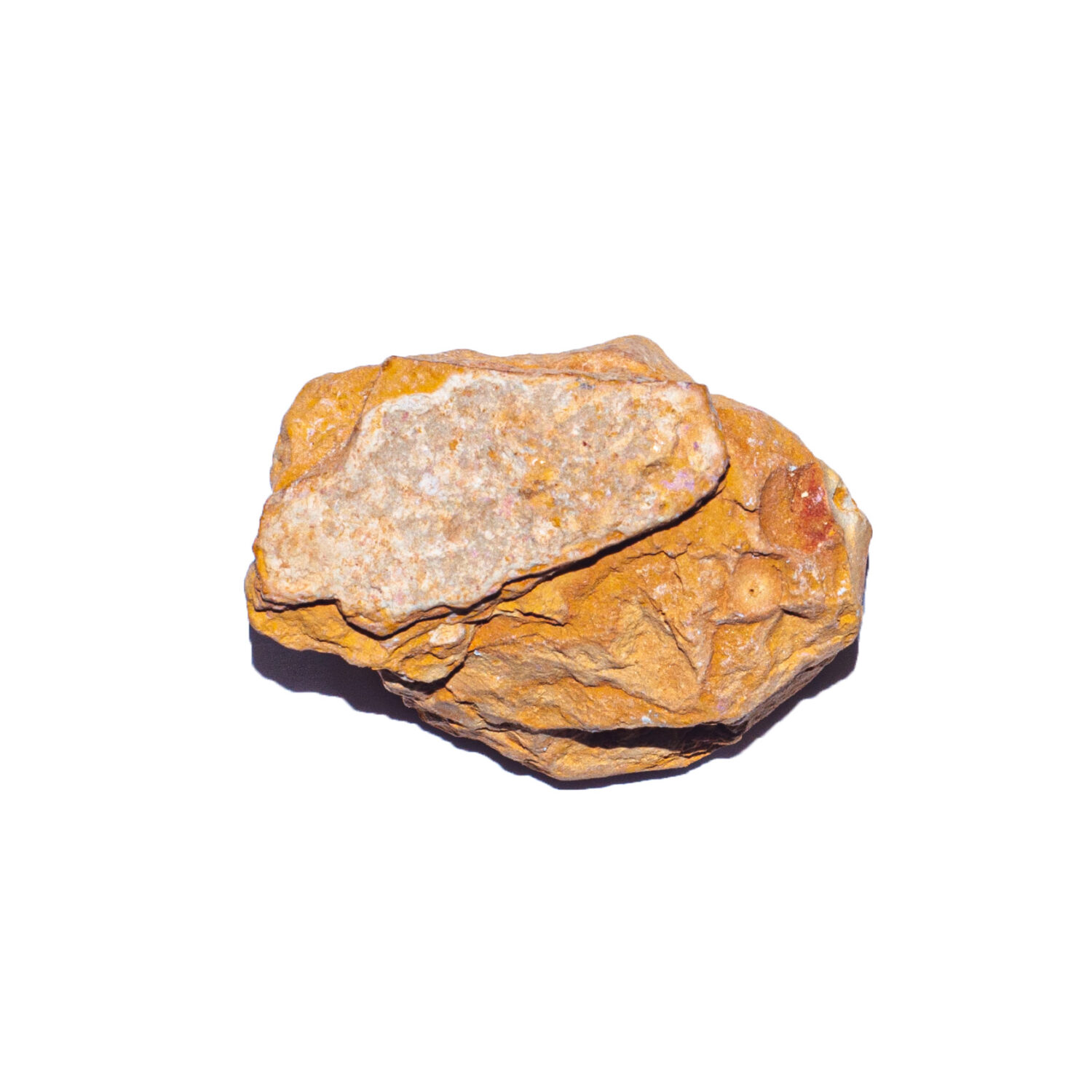Côte d’Ivoire – CI003A
Composition: Clay
Colour: Yellow
Shape: Raw
Sweet and slightly sour, silky texture with no grits, smells of steam from the ground after a heavy rain.
This sample was acquired online in November 2020 on Etsy through a seller offering edible clays and other African cultural products. The Abidjan Kaolin was sold for €5,90 per 100 grams. It is identified by the Etsy vendor as calaba from Côte d’Ivoire. Another vendor refers to this product as lopko.
According to the website of the company Abidjan Kaolin, based in the UK, kaolin is formed by weathering or hydrothermal alteration of aluminosilicate minerals. Thus, rocks rich in feldspar commonly weather to kaolinite. In order to form ions like Na, K, Ca, Mg, and Fe must first be leached away by the weathering or alteration process.
According to various scientific publications in Côte d’Ivoire as elsewhere, some pregnant women ingest clays for preventing nausea due to hyper-salivation, against ulcer pain, and also because of the aroma it gives off. Ingestion of clay is applied as a remedy against diarrhea, as well as against intestinal parasites since ingested particles protect the gastrointestinal epithelium. Clays are also used for antibacterial purposes. Apart from medicinal use, calaba is popularly consumed in West African countries for pleasure.
Sources:
● ‘Unsmoked Abidjan kaolin 1000g (1Kg)’, Abidjan Kaolin (English), accessed on 07/07/2022 www.abidjankaolin.com
● ‘How Kaolin is formed?’, by Style Prestige, Abidjan Kaolin (English), accessed on 07/07/2022 www.abidjankaolin.com
● ‘Reactivity of Clays Consummated in Cote d’Ivoire in Digestive Conditions: Bioavailability of Mineral Elements’, by Vamoussa Coulibaly and others, Asian Journal of Applied Sciences, Volume 06, Issue 05, October 2018 (English)
Screenshot from etsy.com


special taste
dusty
lecker
ja
I am from Côte d’Ivoire and can tell you a bunch on Abidjan edible clay.
Usually, the color depends on the region the clay comes from. Hence you can find white, pink, brown and yellow. The texture is also different as some are hard and others are very soft and bite off easily. Abidjan clay is in general very delicious. Sweet and a little sour, the texture is silky with no gritts. It smell like steam from the ground after a harsh rain especially in the country.
Hope tho have done it justice.
I have also heard that clay from cameroon is even tastier although I have not had the chance to taste it yet.
Hello! Thank you so much for such an amazing sharing. It is wonderful to know, as actually we bought this sample online. It would be amazing to go to the source one day! Warm greetings
n9qs3u
ksj6aa
mklw8e
fyzt21
yklc40
npi2p6
161bli
gjshxy
ofs42g
zv3n2r
z6o65c
e8dxns
70fxk4
3wyra5
3qjqz0
an24xa
7w9d10
bvmbe5
welh9x
r2o2zp
po04qu
g7y4rl
gkmcy4
whs12m
67ypmt
jmccwu
yhaiws
8px4ho
qjsex2
b24yev